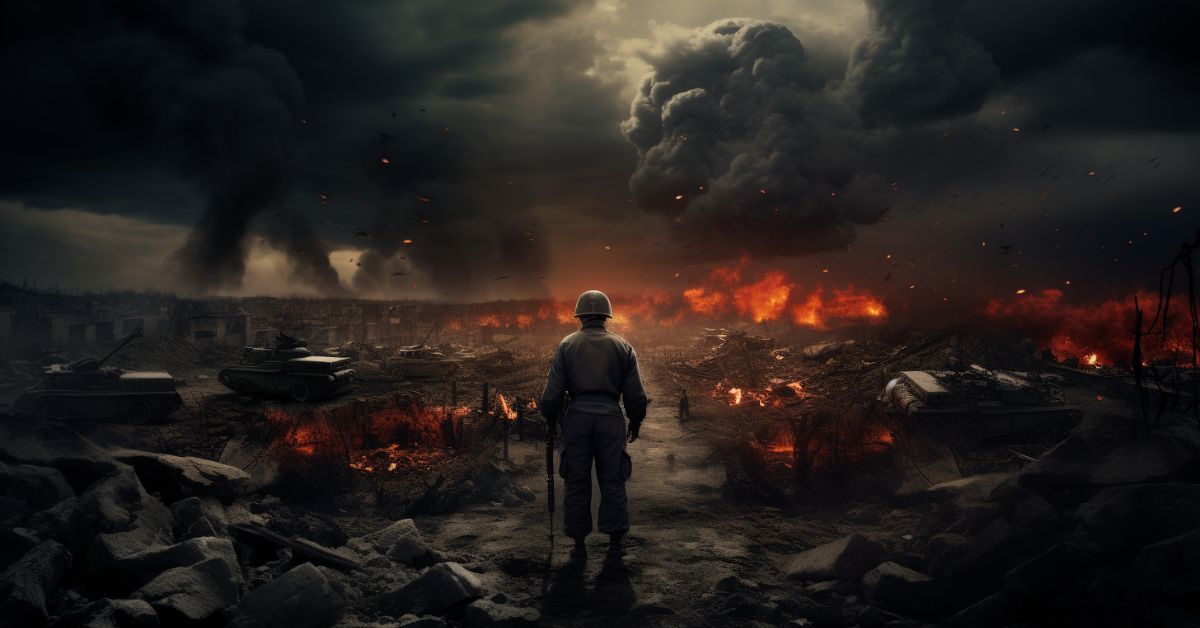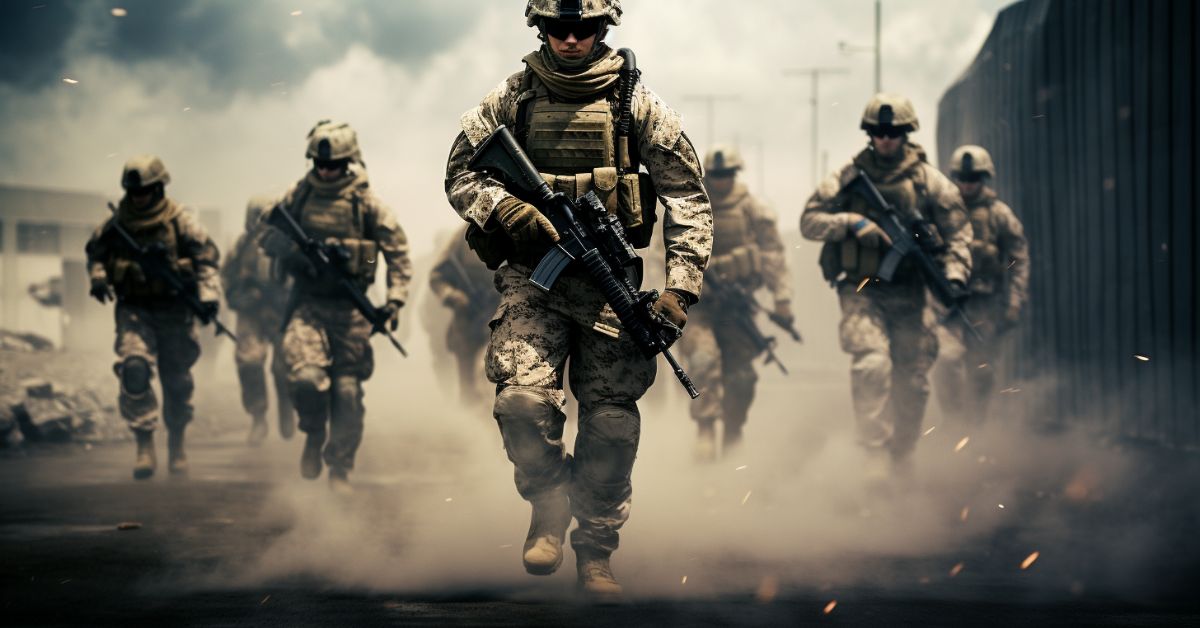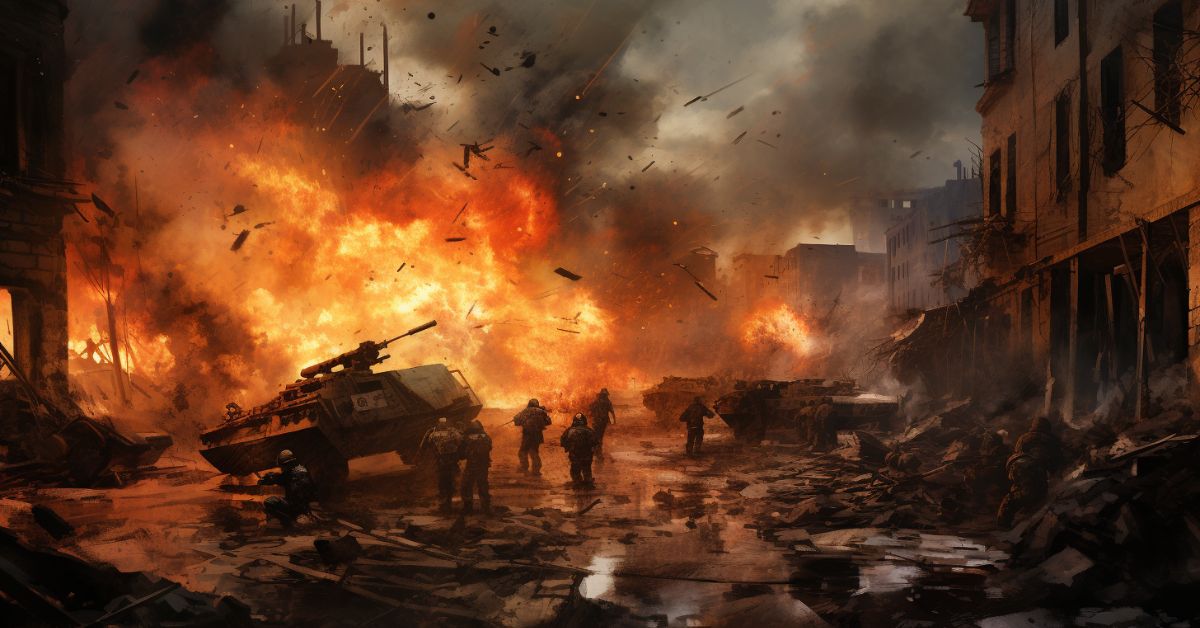NEW YORK, United States — Rising security concerns, confrontational geopolitics, and the chaotic evolution of the new world order have collectively fueled the demand for private military companies (PMCs) across the world. However, contrary to popular perception, PMCs are not a recent phenomenon. Today’s tumultuous global power struggle, new technologies, and high demand from governments and certain powerful leaders have led to a surge in PMCs. These companies have become extremely competitive, driven by the profit motive, much like any other business.
Two PMCs that have been in the news lately are the Wagner Group from Russia and the US-based Constellis-ACADEMI (formerly known as Blackwater). The former has been involved in the Russia-Ukraine conflict, and the latter has been active in Afghanistan and post-Saddam Iraq.
The world of PMCs operates much like a dark web, conducting its business in secrecy despite its open operations. Analysis of the PMC business is often sketchy, but several defense think tanks and research groups have prepared reports to gauge the size, risks, and trends in the PMC sector. A 2022 report by Vantage Market Research estimated the market size of PMCs at US$241.7 billion in 2021, projected to reach US$366.8 billion by 2028, with a CAGR of 7.2 percent during the forecast period.
Vantage, a Washington D.C.-based firm specializing in B2B research, attributes the growth of the PMC industry to factors such as increasing privatization of security, rising demand for security in unstable regions, and technological advances that facilitate the provision of security services by private companies.
Legal Framework
Unlike armies representing countries, PMCs operate in a legal grey area. While the laws of a country and international laws under the UN charter might apply to a country’s armed forces, the same is not always true for PMCs. The Turkish (TRT) Research Center, in a report released earlier this year, states that private military contractors operating in war zones are generally subject to the laws of the country in which they are operating, as well as any applicable international laws and agreements. However, the laws and regulations governing the use of private military contractors in war zones can be complex and may vary depending on the specific context.
The report further states, “Internationally, the use of private military contractors raises a number of legal issues, including the question of accountability when private military contractors are involved in war crimes or other illegal activities. Some international treaties and conventions, such as the Rome Statute, consider that PMCs may be responsible for war crimes if they committed them in the context of an armed conflict, but many other countries don’t have specific laws to deal with PMCs. In summary, the legal situation of private military contractors is complex, and it varies depending on the laws and regulations of the country in which they are operating and the specific circumstances of their involvement in a conflict.”

Privatization of War
Greek historian Herodotus, who died in 425 BC, said about war: “In peace, sons bury their fathers. In war, fathers bury their sons.” Death is imminent whether it’s in war or in peace, but deaths during war bring much more misery due to the scale and ambitions of a third party – a king or a government. War is destructive to begin with, but when fought by government armies, some accountability is practiced. This may not be the case for PMCs.
While organized armies of governments or rulers are as old as human civilization, for-profit armies, also known as mercenary forces or PMCs, are not a modern concept. History is full of instances where regimes used private armies. For example, in 401 BC, there was a force called The Ten Thousand, comprised of independent Greek warriors helping Cyrus the Younger to unseat his brother King Artaxerxes from the Persian throne. Then there was The White Company in 14th century Italy, considered one of the most elite mercenary armies in the region.
Fast forward to the 20th century, in 1941, the United States government under President Franklin D. Roosevelt assembled a team of fighter pilots called The Flying Tigers to fight alongside Chinese forces against Japan during World War II. The fighter pilots were secretly recruited from the US Army Air Force to maintain neutrality. The pay package of the pilots of The Flying Tigers was more than double, along with other perks.
Writing for a report titled Mercenaries and War: Understanding Private Armies Today, Georgetown University’s Professor of Strategy Dr. Sean McFate says that the taboo against mercenaries is a recent invention, only a few hundred years old. He states, “Mercenaries were long considered an honorable, albeit bloody trade, and only the past 200 years stigmatized them. As for the previous 4,000+ years, mercenaries were a feature – often the main feature – of war. The word mercenary comes from the Latin merces (wages or pay) and is no different than the solde or pay due to fighters, from which the word ‘soldier’ is derived. For much of the past, mercenaries and soldiers were synonymous.”
Speaking to TRENDS, Senior Political Scientist for the US think tank RAND, Molly Dunnigan, said, “The private military and security industry erupted back onto the world stage after a roughly 200-year hiatus with the 2003 Iraq War. Prior to the French Revolution in the late 1700s, mercenaries (foreign fighters hired for pay) were the norm for military forces. Although the Peace of Westphalia in 1648 had officially denoted a state as having a monopoly on the legitimate use of force, state militaries did not officially become the norm until the Napoleonic Wars – over 100 years later.”
She adds, “In the past 10 years, the market for force has evolved and shifted to focus more on logistical support and static site guarding of extractive and business sites, mainly in the Global South (Middle East, Africa, Latin America). Armed security remains an important function but has less visibility than during the height of the wars in Iraq and Afghanistan.”

The Wagner Group and others
Recently in the news owing to a coup attempt in Russia on June 23, 2023, the Wagner Group from Russia is a PMC that became notorious for hiring desperate youth from prisons and sending them to several corners of the world, along with fighting for Moscow in its conflict against Kyiv (Ukraine). Founded in 2014 by a Russian oligarch Yevgeny Prigozhin, who has had close ties with Russian President Vladimir Putin, the Wagner Group is a PMC that employs thousands of fighters with budgets running into hundreds of millions of US dollars.
Despite being in the news and trending on social media lately, the Wagner Group may not be the largest PMC in the world. This title belongs to the US-based Constellis-ACADEMI, earlier known as Blackwater.

On the market of PMCs, Molly, who is also the director of strategy, doctrine, and resources program at RAND Arroyo Center, says that the market size and structure are variable across regions. “Western PMCs such as Constellis Group have been characterized in recent years by mergers and acquisitions, controlled by parent investment firms and generally very corporate in nature. On the opposite end of the spectrum, Wagner Group is a Russian state-affiliated paramilitary organization funded through a series of front companies established via the Russian state to funnel funds between the Russian state, major extractive sites in Africa, the Middle East, and Latin America, and company leaders.”
According to a research paper released in June 2023 by the New York-based The Soufan Center, founded by former FBI investigator Ali Soufan, Wagner functions like a Swiss army knife: “Wagner has demonstrated effective expeditionary skills and logistical capabilities that many PMCs could not marshal, continuously diversifying its portfolio. Beyond the military training that Wagner provides, which includes conducting offensive combat operations and, in some cases, serving as regime security, the group also advises government leadership on political issues and conducts information campaigns.”
THE EXPERT SPEAKS Below is an extended interview with RAND’s Molly Dunnigan on the private military companies: What regions have maximum engagements with the PMCs? Areas of the Global South including the Middle East, Africa, and Latin America are the targets of most private military activity. However, firms in the industry are based worldwide throughout major state actors in both the West and East, including the US, United Kingdom, Canada, Australia, New Zealand, South Africa, Russia, and China. What are the risks of PMCs as some of them might go rogue? Private military actors fall into a legal gray area and are difficult to hold accountable for crimes committed while deployed. For states deploying PMCs in Iraq and Afghanistan circa 2003-2011, this lack of accountability was an inconvenience and at times a risk to military operations. Russia, on the other hand, utilizes these qualities of private military actors as an instrument of state policy, allowing the state plausible deniability for a tactical style characterized by extensive brutality. There is always a risk that a PMC might go rogue if it becomes sufficiently large and powerful; however, PMCs are essentially businesses and motivated by money. The situation of the Wagner Group “rebellion” in late June 2023 was effectively a contract renegotiation gone wrong and showed little signs of a political takeover. Why are some political regimes and leaders with absolute powers increasingly relying on PMCs? Private military actors such as PMCs, mercenaries, and paramilitary organizations provide leaders with plausible deniability for actions that the leaders would like to take “in the shadows” – i.e., activities that they do not want the international or domestic public to notice, activities that provide the state with a “footprint” or boots on the ground in an area where they want geostrategic influence but do not want to stimulate a defensive response, and/or activities that are characterized by extensive brutality. Overall, what objectives are being achieved with PMCs even though each region or area of the PMC operation is unique in needs and objectives? Private military deployments tend to enhance a state’s geostrategic reach without the involvement of their state-affiliated military, thus enhancing power and/or funding sources for the state. What is the status of PMCs in the Middle East? How much money is being invested in the region? Numerous private military actors have been involved in the Middle East since 2003, if not earlier. These actors comprise corporate PMCs as well as more paramilitary-style networks of forces affiliated with rogue states in the region. Due to the confluence of numerous actors – including businesses and governments – funding these private actors separately, no reliable data is being reported on the total amount of money being invested to support these activities in the region. What is the funding mechanism for PMCs? Private military actors are funded through a variety of means, including both transparent and shadowy state funding sources (e.g., a State Department contract for embassy security vs. Russian state funding for Wagner Group forces). Some state funding is effectively laundered through various front companies to maintain plausible deniability between the state and private forces’ operations; this is common for Wagner Group funding. Other private military actors are funded directly by businesses contracting them for risk assessment, logistical support, and security services for operations in inhospitable areas. Some are even funded by non-governmental or international organizations for logistical support or security in dangerous regions. Even wealthy private individuals can fund private military activity in some situations, for their own personal protection or protection of their assets and property. How do you see the future of PMCs in a world heading toward increased complexity and being more conflict-prone? The world is going to see more private military activity over time. Again, this is a return to the norm of mercenary-ism, which was in place for thousands of years prior to the French Revolution. Because they provide states with the advantages of manpower and plausible deniability, leaders will continue to be incentivized to use such forces. Moreover, because individual contractors can make a significant amount of money working for a private military force, and because the industry is very transnational in nature, it continues to retain people and have a ready supply of manpower.
The paper adds about the Russian PMC, “Russia’s use of Wagner proved at one point to be highly effective for the Kremlin. Wagner generates profits, operating through a series of shell companies. It has invested in extractive industries across Africa, reportedly receiving access and rights to commodities in exchange for its security services. Wagner’s opaque structure allows it to carry out Russian foreign policy objectives while insulating Moscow from significant blowback.”
The British PMC G4S and the American firms Constellis-ACADEMI (Blackwater) and CACI International are no saints either when it comes to scandals and controversies. Founded in 1962, CACI International got embroiled in Iraq’s Abu Ghuraib prison scandal. In 2003, CACI employees were present at the prison during the time when prisoners were subjected to brutal and inhumane treatment, including sexual abuse and torture.
The then Blackwater’s guards were involved in the 2007 killings of 17 Iraqi civilians near Baghdad’s Nisour Square. The firm has also been accused of other questionable actions, such as weapons trafficking, illegal arms sales, and bribery.
According to the Turkish (TRT) Research Center, the founder of Blackwater, Erik Prince, carried out a number of activities to explore and extract natural resources in Afghanistan in 2018.
The list of scandals at the British G4S ranges from being involved in the Israeli-Palestinian conflict, where it acted as security for the Israeli West Bank settlers, to the deportation and detention of immigrants in the United Kingdom, and the mismanagement during the London 2012 Olympics.
The Warriors of the PMCs
According to the Turkish Research Center, private military companies pay their soldiers a higher-than-average military salary. The salaries of PMCs in the US range from $17,412 to $462,765, with a median salary of $83,487 per year. On the other hand, the estimated total salary for a Soldier in the US Army is $63,816 per year.
Wagner Group increased the wages of its fighters from $3,000 to $5,000 before the Ukraine war, and up to $10,000 during the Ukraine war, said the research center, quoting unknown sources. “The Russian army pays its soldiers fighting in Ukraine between $2,350 and $3,140 per month on average. A PMC soldier may also receive benefits such as health insurance, retirement plans, and paid leave. The compensation can be even higher for soldiers with specialized skills, such as language fluency, and for high-risk assignments,” it said.

THE NEW WARFARE
Despite controversies, military and security experts say that PMCs are the new reality of modern warfare, and this is not without risks.
Patricia Lewis, Director of the Arms Control and Non-Proliferation Program at Chatham House, says the use of PMCs is a growing trend, and it is important to be aware of the potential risks and challenges associated with this. “PMCs can be used to circumvent international law and human rights norms, and they can contribute to instability. It is important to ensure that PMCs are regulated in a way that protects human rights and international law.”
Senior Fellow at the New America Foundation, Peter Singer, provides his opinion, saying the PMCs are a part of the new reality of warfare, and they are here to stay. “It is important to understand the role that PMCs play in the world, and it is also important to ensure that they are regulated in a way that protects human rights and international law.”
It is important to note that there are also some experts who argue that PMCs can play a positive role in the world. These experts argue that PMCs can provide security and stability in unstable regions, and they can also help to train and professionalize local security forces.
Rory Stewart, former UK Foreign Secretary, says the rise of private military companies is one of the most significant developments in international security in recent years. “These companies provide a range of services, from training and logistics to combat operations, and they are increasingly being used by governments and businesses around the world. However, the use of PMCs is controversial, and there are concerns about their accountability, transparency, and potential for human rights abuses. It is important to regulate the use of PMCs in order to ensure that they are used in a responsible and ethical manner.”
Some experts also highlighted human rights concerns. Martha Farrell, Senior Researcher at the International Peace Institute, says the use of private military companies is a double-edged sword. “On the one hand, PMCs can provide valuable services that governments and businesses may not be able to provide themselves. On the other hand, there are risks associated with the use of PMCs, such as the potential for human rights abuses and the lack of accountability. It is important to carefully consider the risks and benefits of using PMCs before making a decision to do so.”
Director of the Security and Justice Program at Amnesty International, James Smith, says the use of private military companies is a serious threat to human rights. “PMCs have been involved in a number of human rights abuses, including extrajudicial killings, torture, and the use of child soldiers. It is essential that governments regulate the use of PMCs and hold them accountable for their actions.”
The story has been put together by the TRENDS Research and Investigation Team.







